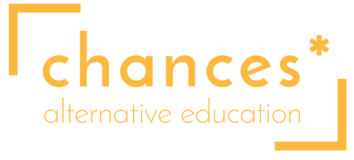
PSHE
Personal, Social & Health Education
PSHE will enable students to feel positive about who they are and to enjoy healthy, safe, responsible and fulfilled lives. Through active learning opportunities pupils will learn to recognise and manage risk, take increasing responsibility for themselves, their choices and behaviours and make positive contributions to their families, schools and communities.
Students will learn to recognise, develop and communicate their qualities, skills and attitudes. They build knowledge, confidence and self-esteem and make the most of their abilities. Students will learn to identify and articulate feelings and emotions, learn to manage new or difficult situations positively and form and maintain effective relationships with a wide range of people.
Our aim therefore for PSHE is to provide pupils with:
accurate and relevant knowledge
opportunities to turn that knowledge into personal understanding
opportunities to explore, clarify and if necessary challenge, their own and others’ values, attitudes, beliefs, rights and responsibilities
The skills and strategies they need in order to live healthy, safe, fulfilling, responsible and balanced lives
At Chances we know that learning and undertaking activities in PSHE education contribute to achievement of the curriculum aims for all young people to become:
successful learners who enjoy learning, make progress and achieve
confident individuals who are able to live safe, healthy and fulfilling lives
responsible citizens who make a positive contribution to society
In PSHE at Chances, we will:
Create a comfortable classroom climate where students are confident and discuss their hopes, fears and sensitive issues
Develop a set of ground rules for the PSHE classroom
Model good practice in the way we talk to students
Provide enrichment opportunities that support and develop our students emotional and physical well being
Work with external providers to provide the best possible experience and expertise for our students
Remain flexible with our Curriculum and respond to issues as and when they arise.
In Key Stage 3 and 4 students receive two lessons per week (1.5 hours) of PSHE, delivered by our PSHE Lead.
Quiz of the Week
Each week the students access a general knowledge current affairs quiz. The purpose of this is to help children gain a knowledge and understanding of what is happening in the world around them.
PSHE Core Theme 1: Health and wellbeing overview
In Key Stages 3 and 4, will be taught:
how to manage transition
how to maintain physical, mental and emotional health and wellbeing including sexual health*
about parenthood and the consequences of teenage pregnancy
how to assess and manage risks to health and to stay, and keep others, safe
how to identify and access help, advice and support
how to make informed choices about health and wellbeing matters including drugs, alcohol and tobacco, maintaining a balanced diet, physical activity, emotional health and wellbeing and sexual health
how to respond in an emergency including administering first aid
The role and influence of the media on lifestyle
* Sexual health is included within this core theme however it is important that it is also considered within the context of healthy relationships.
PSHE Core Theme 2: Relationships overview
In Key Stages 3 and 4, pupils will be taught:
how to develop and maintain a variety of healthy relationships within a range of social/cultural contexts and to develop parenting skills
how to recognise and manage emotions within a range of relationships
how to deal with risky or negative relationships, including all forms of bullying and abuse, sexual and other violence and online encounters
about the concept of consent in a variety of contexts (including in sexual relationships)
about managing loss, including bereavement, separation and divorce
to respect equality and be a productive member of a diverse community
how to identify and access appropriate advice and support
PHSE Core Theme 3: Living in the wider world overview
In Key Stages 3 and 4 pupils will focus on ‘economic wellbeing, careers and the world of work’ and be taught:
about rights and responsibilities as members of diverse communities, as active citizens and participants in the local and national economy
how to make informed choices and be enterprising and ambitious
how to develop employability, team working and leadership skills and develop flexibility and resilience
about the economic and business environment
how personal financial choices can affect oneself and others and about rights and responsibilities as consumers
